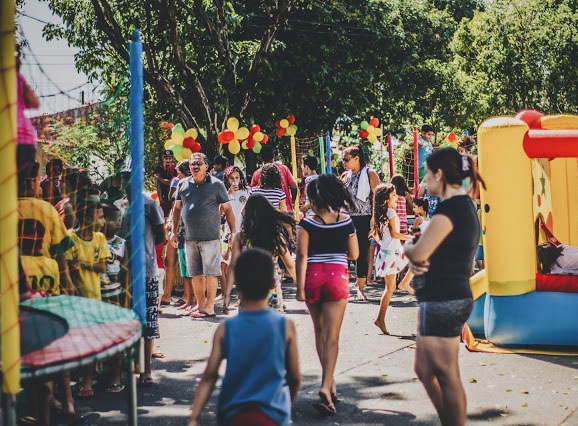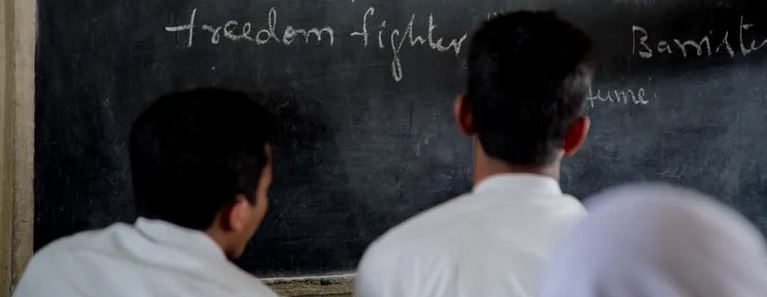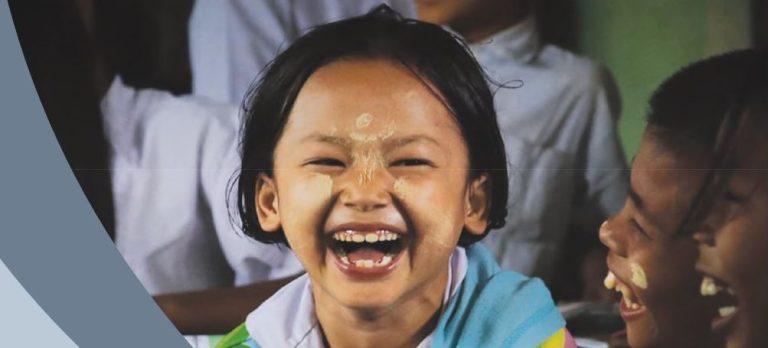The world is experiencing major geopolitical, economic, environmental and social shifts resulting in increased international migration. In turn, migration flows are having a snowball effect on cultural, ethnic, linguistic and religious diversity in many of today’s classrooms, particularly in cities and large metropolitan areas. As a result, calls for schools to help their students develop social and emotional skills – in addition to strong academic skills – are growing louder. Social and emotional skills are crucial for a child’s ability to thrive in complex, interconnected and highly diverse environments in and outside of school. Additionally, the OECD’s own work has shown that these skills are crucial assets for the working environments of the 21st century.
We should view migration flows not only as a challenge, but also as an opportunity. If we work together to support our teachers and principals while having an open mind, a bold and ambitious heart, and a kind and welcoming spirit, we can reshape our schools and adapt our classrooms – and ourselves – to better meet the needs of today’s children and tomorrow’s citizens.
As a result of the unique challenges immigrant and refugee children face, many have distinct social and emotional needs. For example, some students may have experienced trauma fleeing war-torn countries during their migration. Others may have been separated from their immediate or extended family, leaving them with feelings of guilt and shame about loved ones left behind. Community ties were broken for all children who have experienced migration, and the resulting stress can have a lasting impact on their socio-emotional development. Even when parents are present, they might be overwhelmed by their own experience of displacement,leaving them unable to support their children’s social and emotional development.
Migrant children have to negotiate new roles and identities in an unfamiliar cultural context. Some are called to demonstrate allegiance to their native or host country when choosing which language to speak, which sport to practice, which music to listen to, or which social group to join. They also have to juggle the attitudes and stereotypes of numerous different social groups and find where they fit in. Adjusting to their new environment can be a long bumpy road, but through the support of teachers, school principals, other education professionals and communities migrant children can navigate the difficult transition.
Diversity can be an opportunity for students without an immigrant background to develop social and emotional skills.
At the same time, diversity can also be an opportunity for students without an immigrant background to develop social and emotional skills. This includes self-awareness of their own attitudes, stereotypes and emotions; social awareness, which enables them to empathise with others from diverse environments; the capacity to manage diverse social relationships by making constructive choices about how to act and behave in social interactions; and social engagement, which reflects their desire to contribute to the well-being of their school and community.
In an effort to address these challenges, the Department of Education and Early Childhood Development of New Brunswick in Canada, the Directorate for Education and Skills at the OECD and the Council of Education Ministers in Canada have organised a policy forum on the theme: “Social Emotional Learning to Foster a Sense of Belonging for Immigrant and Refugee Learners”. On May 31st and June 1st, a group of international experts, practitioners, school leaders, teachers and policy makers will convene in Fredericton, Canada to consider how learning from past practices could help change the future of education and support the social and emotional learning of migrant and refugee children.
In the spirit of the OECD’s Strength through Diversity initiative, international and Canadian participants will bring a wide range of perspectives to this forum, given their diverse roles, responsibilities and backgrounds. The aim is not only to advance our understanding of what has happened so far and discuss what may come next; we also hope to create an international community that promotes effective school policies and practices to support migrant and refugee learners.
This forum will be the fourth in a series organised by the OECD’s Strength through Diversity project. Speakers will introduce key themes during small group discussions and exercises, as well as roundtables and panel discussions. The meeting will cover five key themes:
- The role of education in social and emotional learning and sense of belonging;
- Language for social cohesion;
- Culturally responsive teaching practices;
- Retention of immigrant children and education for global citizens;
- Whether ICT and digital technologies are tools for fostering or threatening integration.
The programme will, for the first time in the series, include school visits, and on the first evening, participants will have the opportunity to meet community leaders, community organisers, and students from immigrant or refugee backgrounds, at the Beaverbrook Art Gallery reception.
The keynote address will be given by Dean Marcelo Suárez-Orozco, Wasserman Dean at the Graduate School of Education and Information Services, University of California – Los Angeles. Other speakers will include:
- Stefaan Hermans, Director for Policy Strategy and Evaluation in the European Commission’s Directorate for Education Youth Sports and Culture
- Professor Veronica Boix Mansilla, Harvard University
- Professor Benedicta Egbo,University of Windsor
- Professor Stacey Wilson-Forsberg, Wilfrid Laurier University
- Dr. Angelica Galante, University of Toronto
- Letitia Zwickert, high school teacher, Fulbright Specialist in Education and founder of MENTEE.
Lessons arising from the meeting will be shared in a proceedings document published on the Strength through Diversity website. We encourage all to read the proceedings when they are published, and we invite everyone to follow the meeting through live broadcasts on May 31st (13:00 GMT to 23:00 GMT) and June 1st (17:00 GMT).
In the spirit of the motto “stronger together”, we wish a productive forum and insightful discussions to all those who will travel to Fredricton. And to those joining us remotely: enjoy the show!



